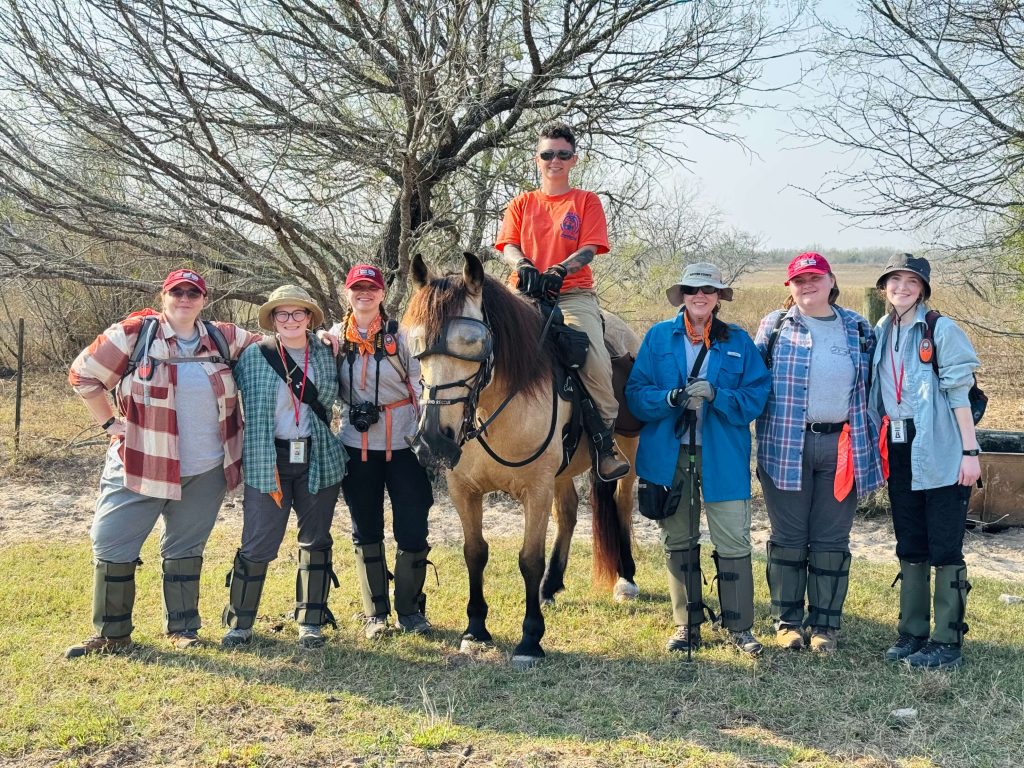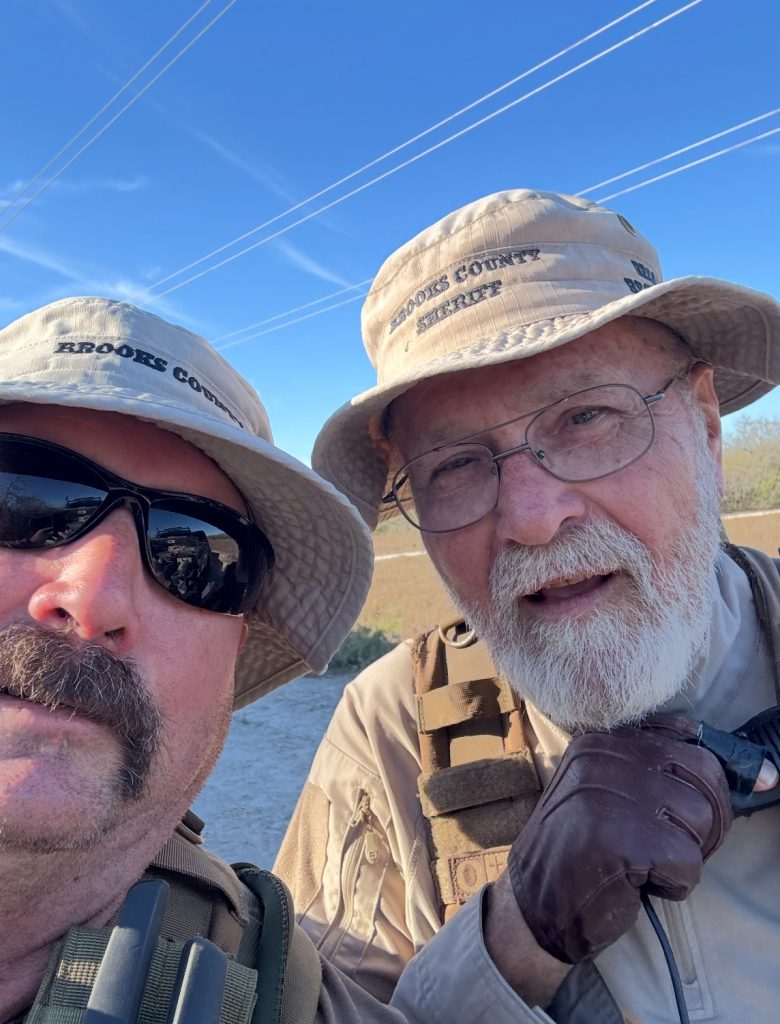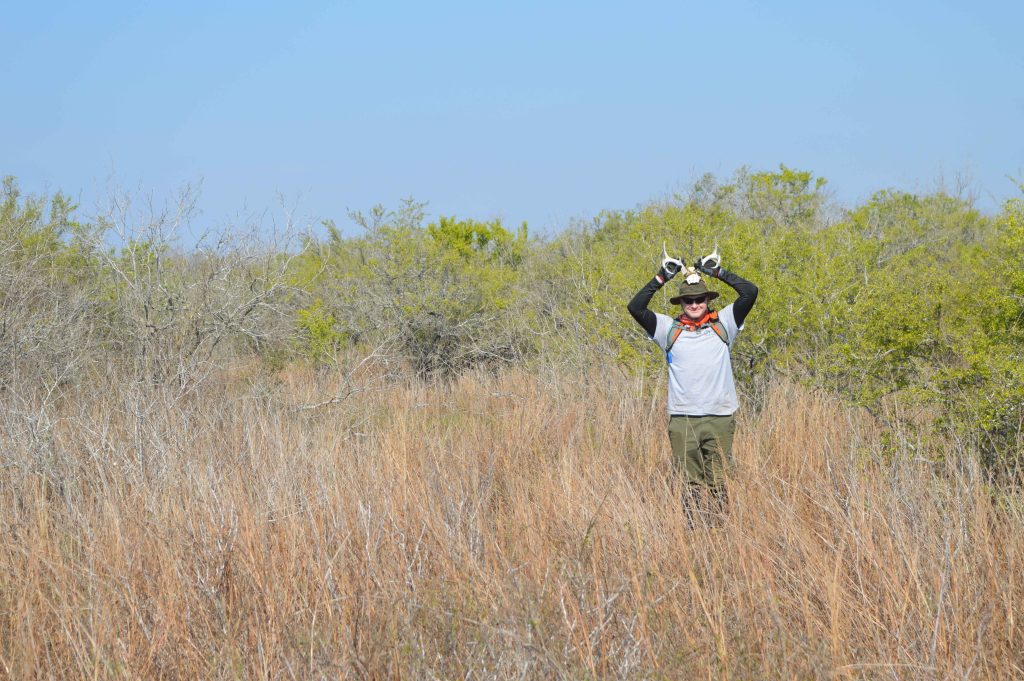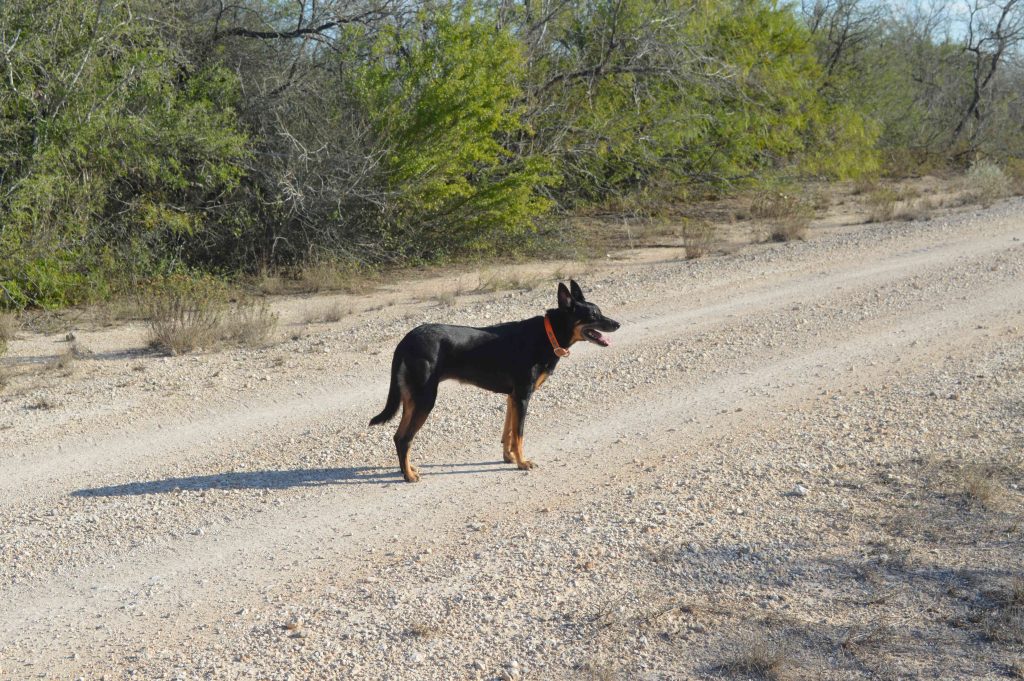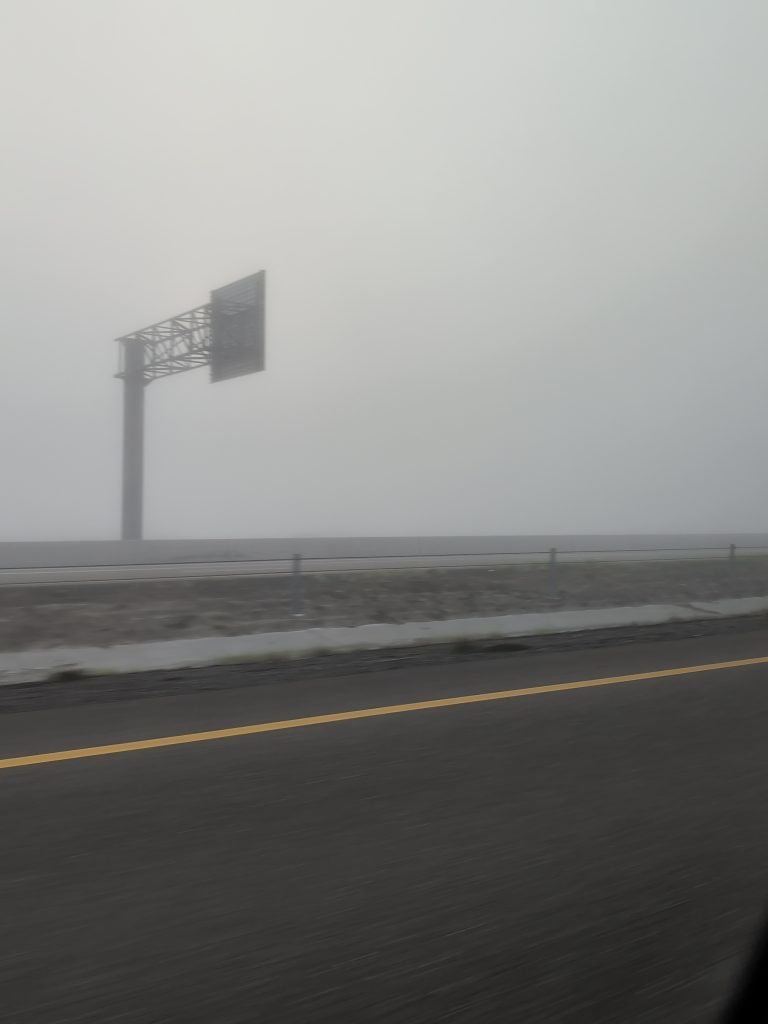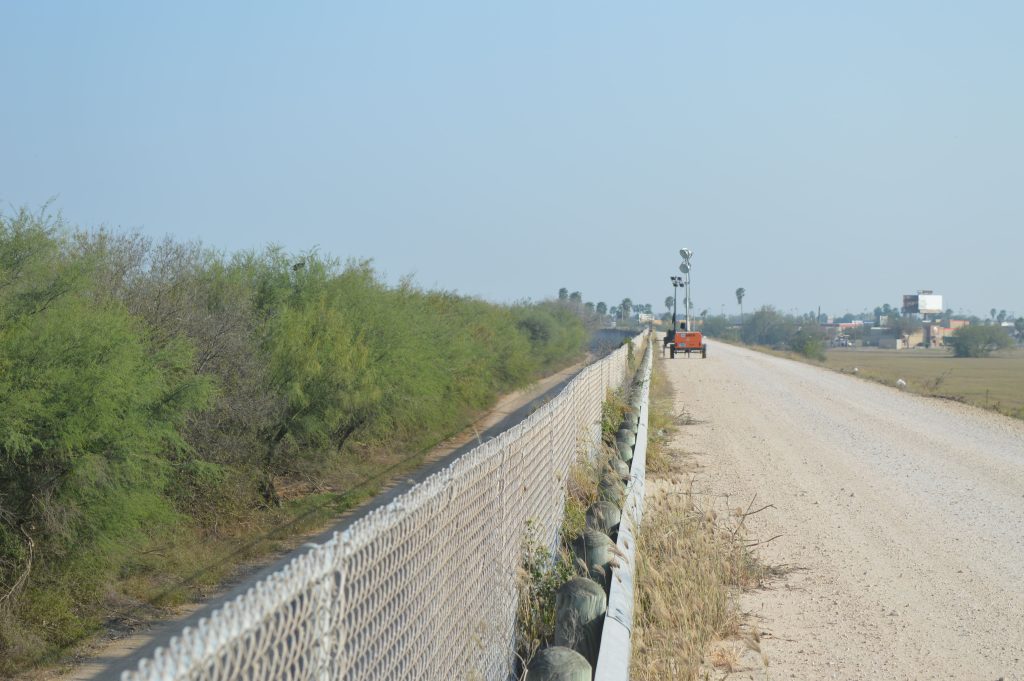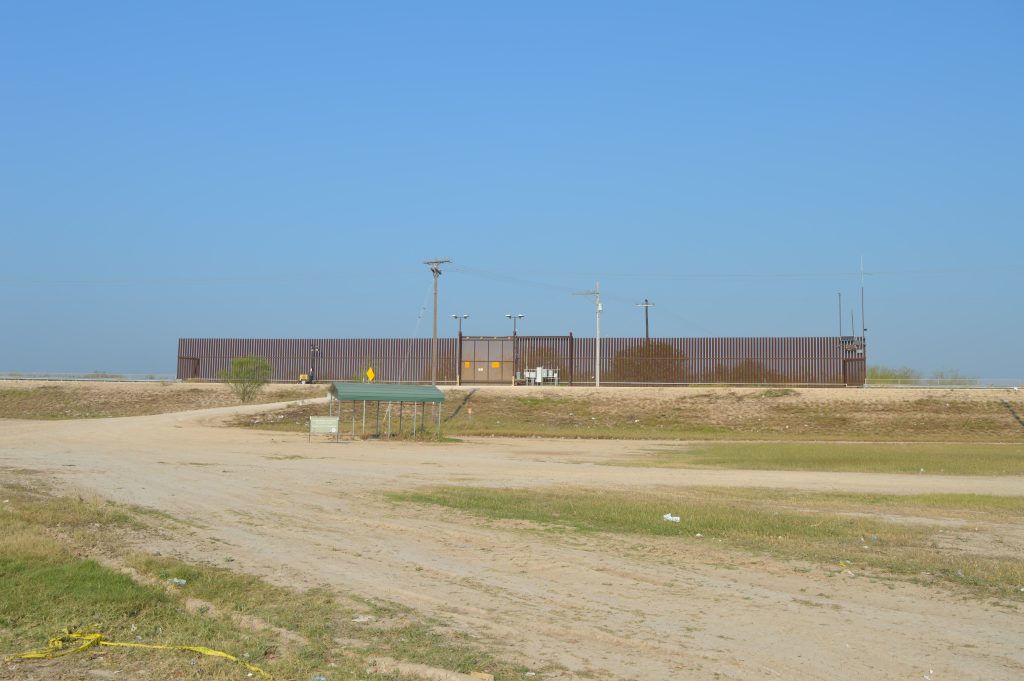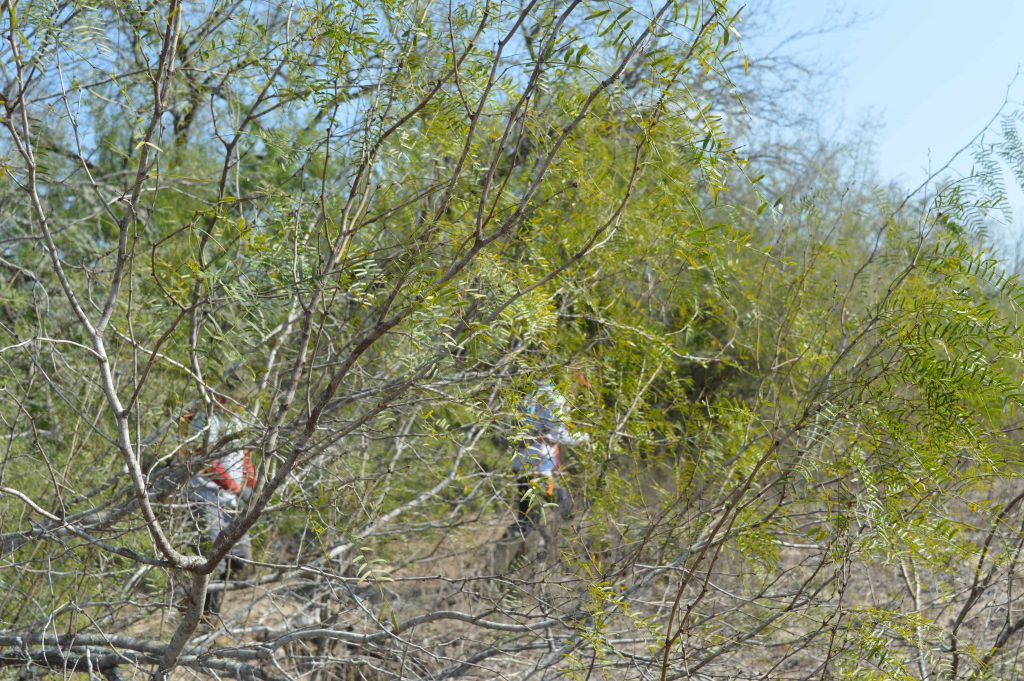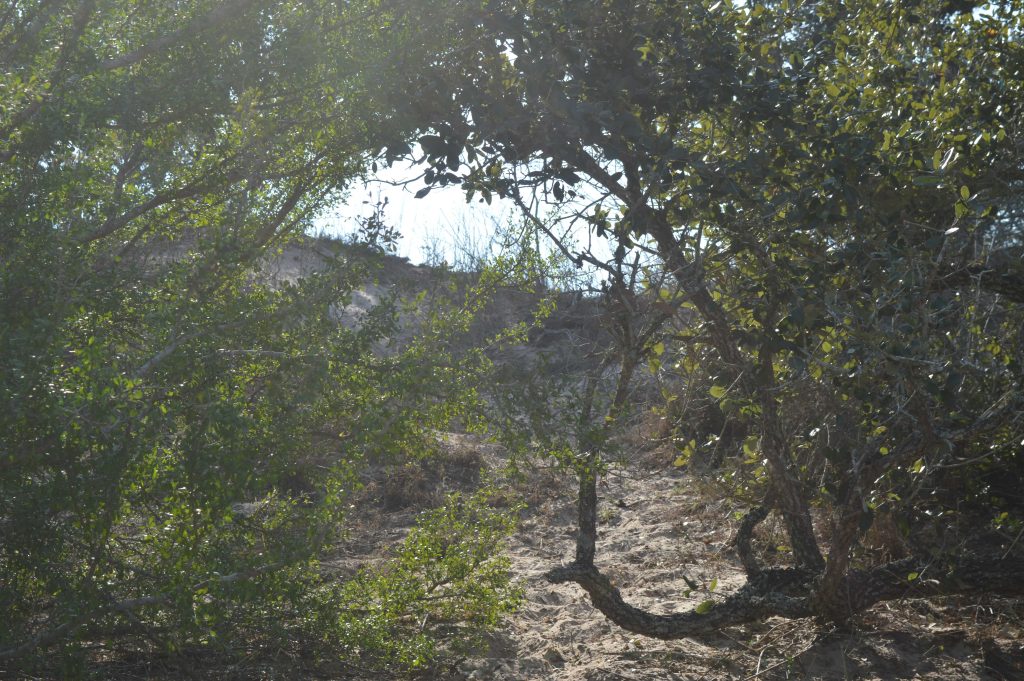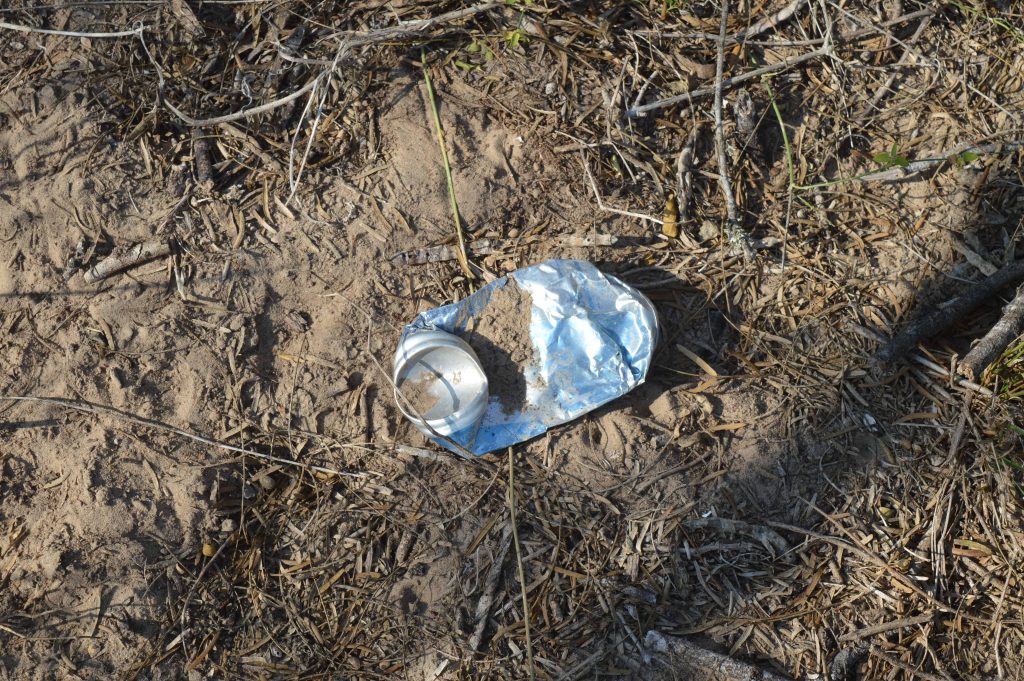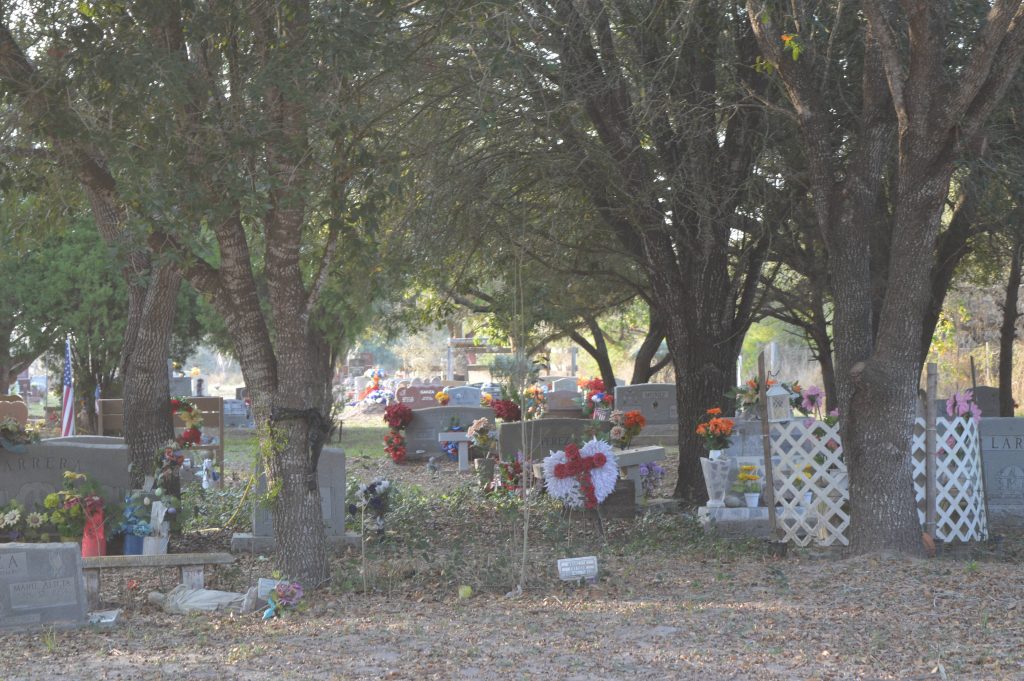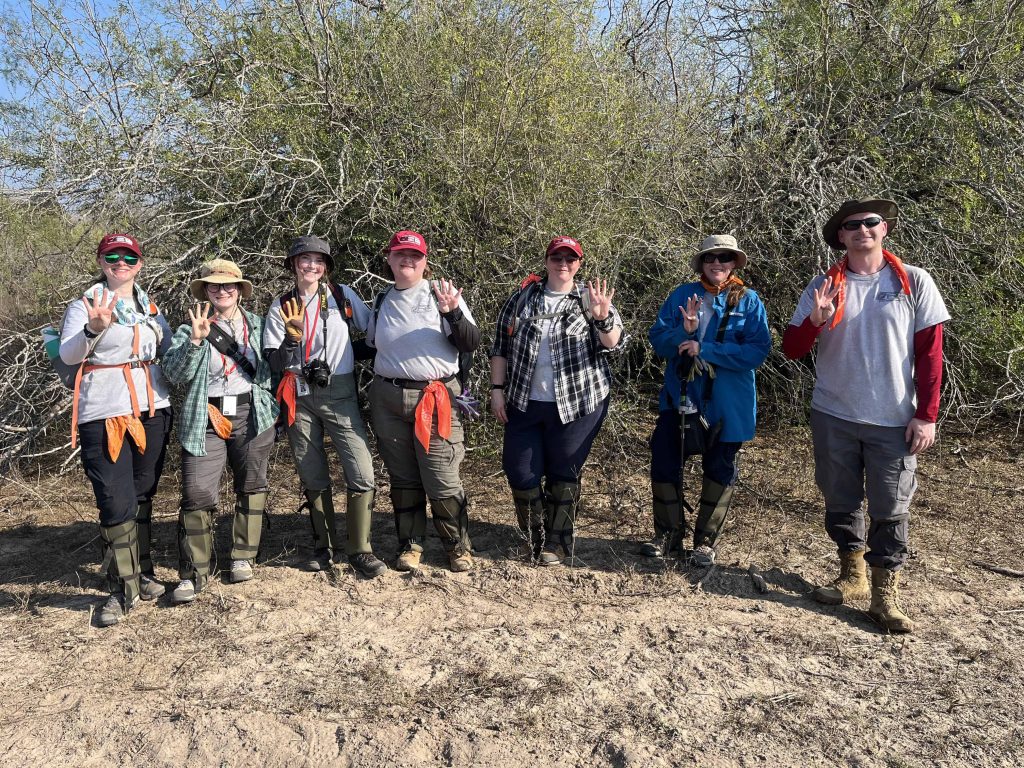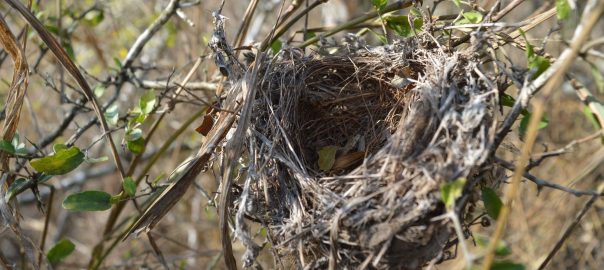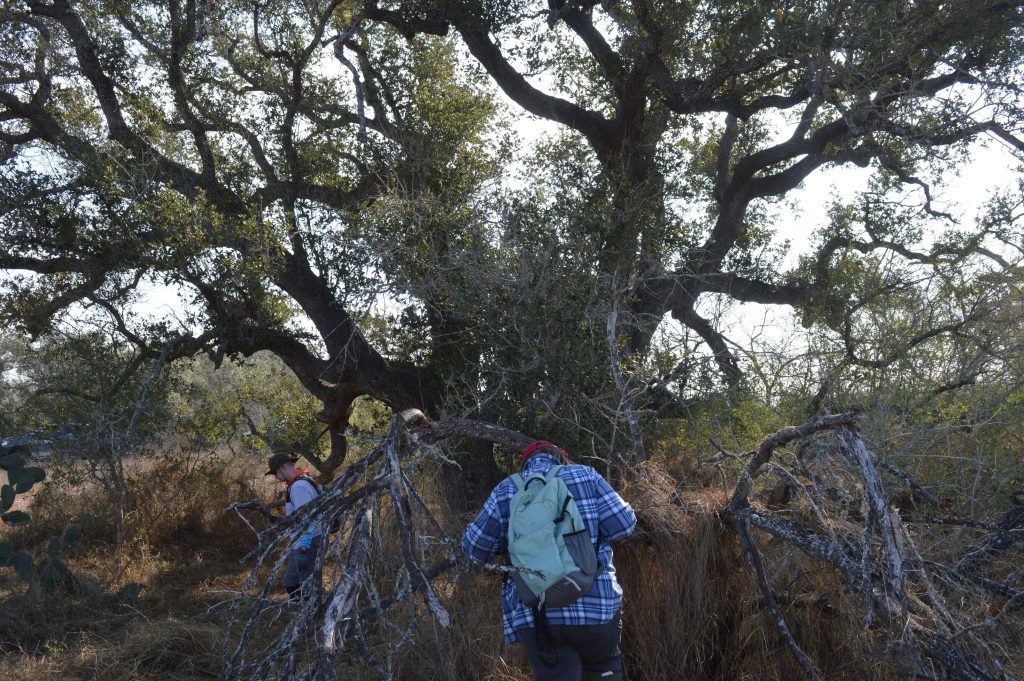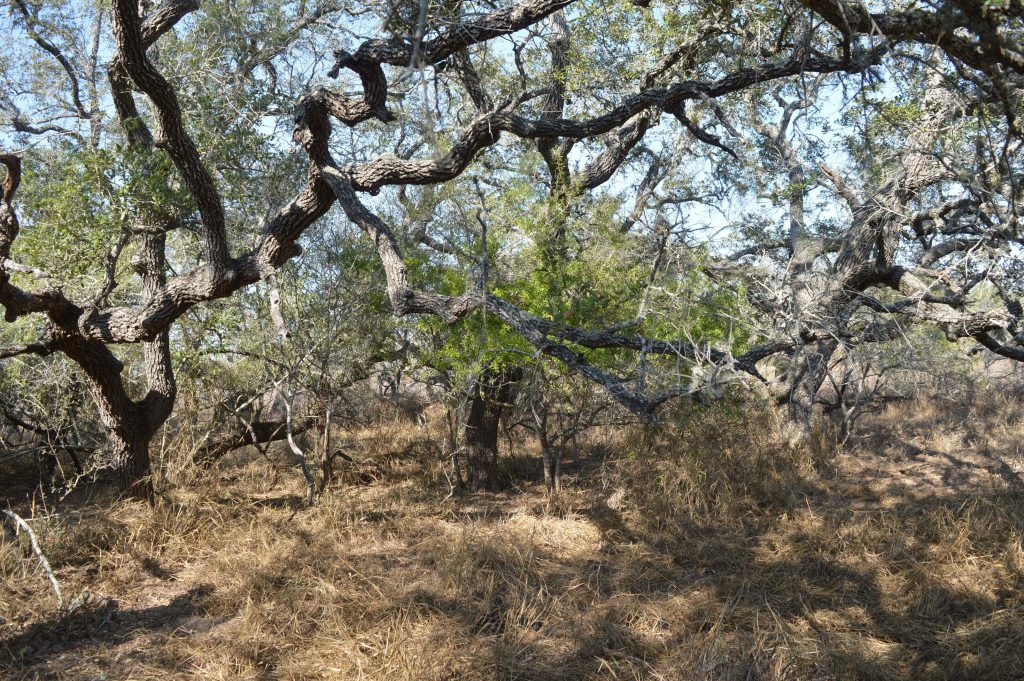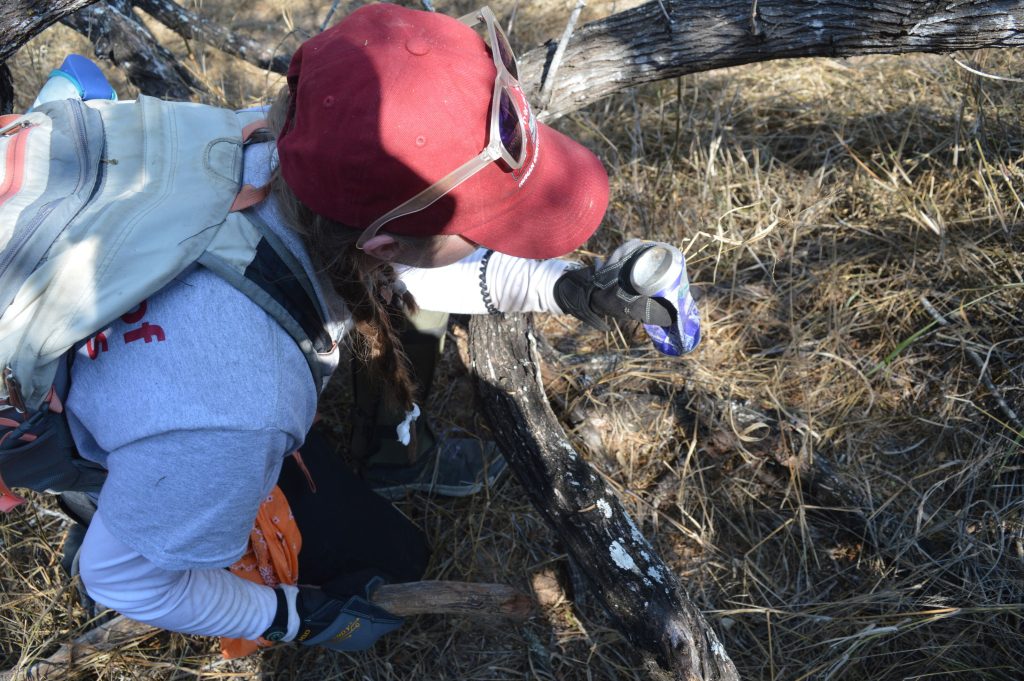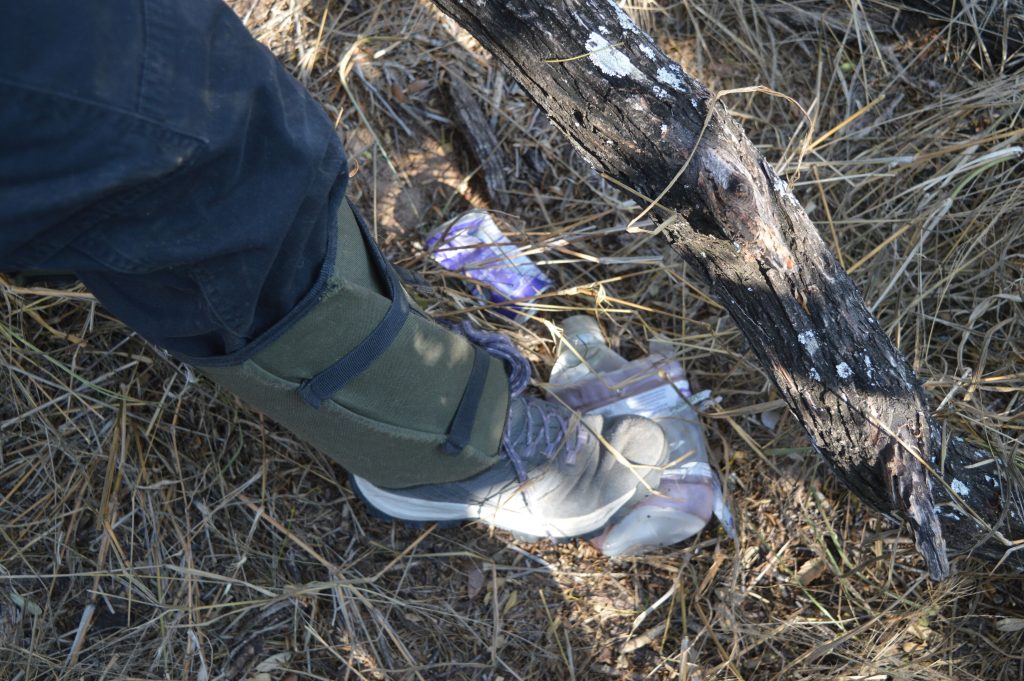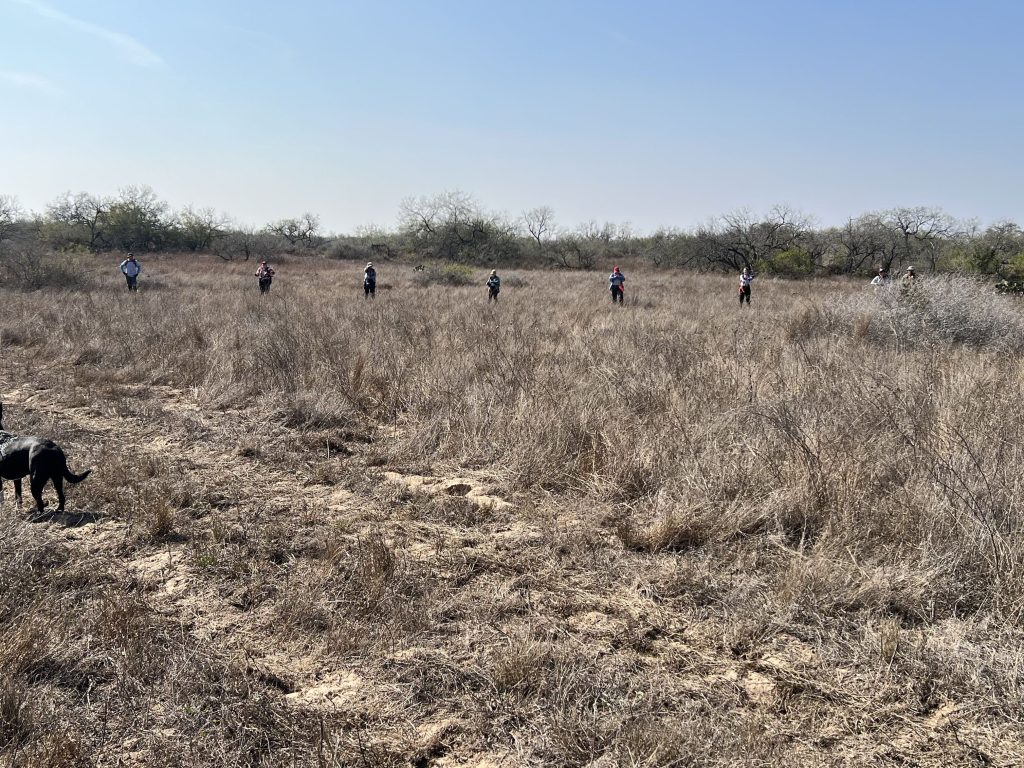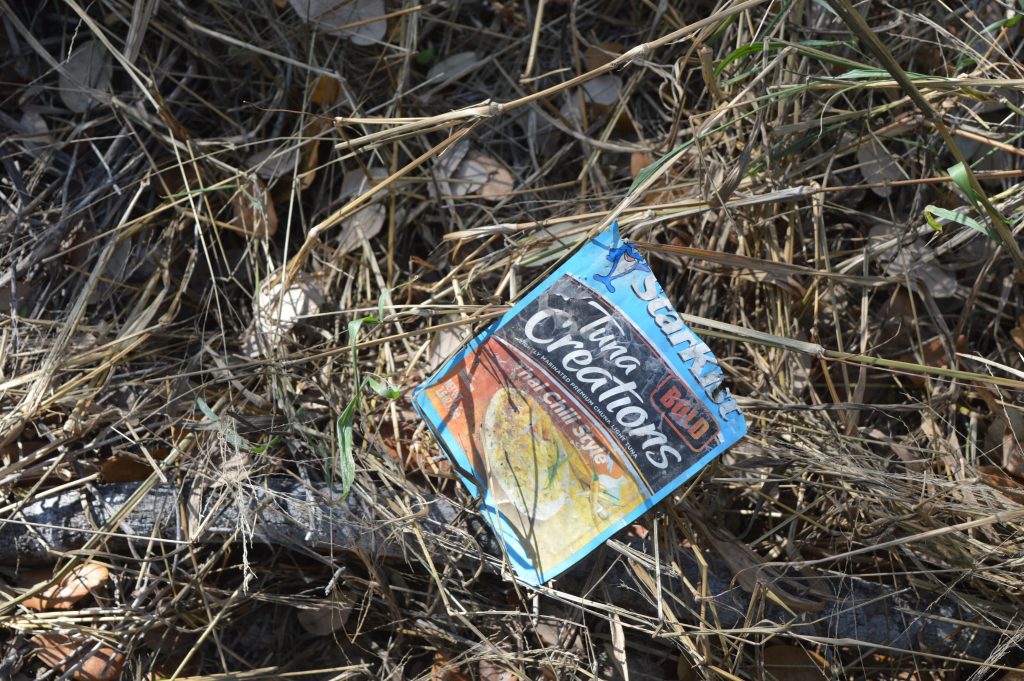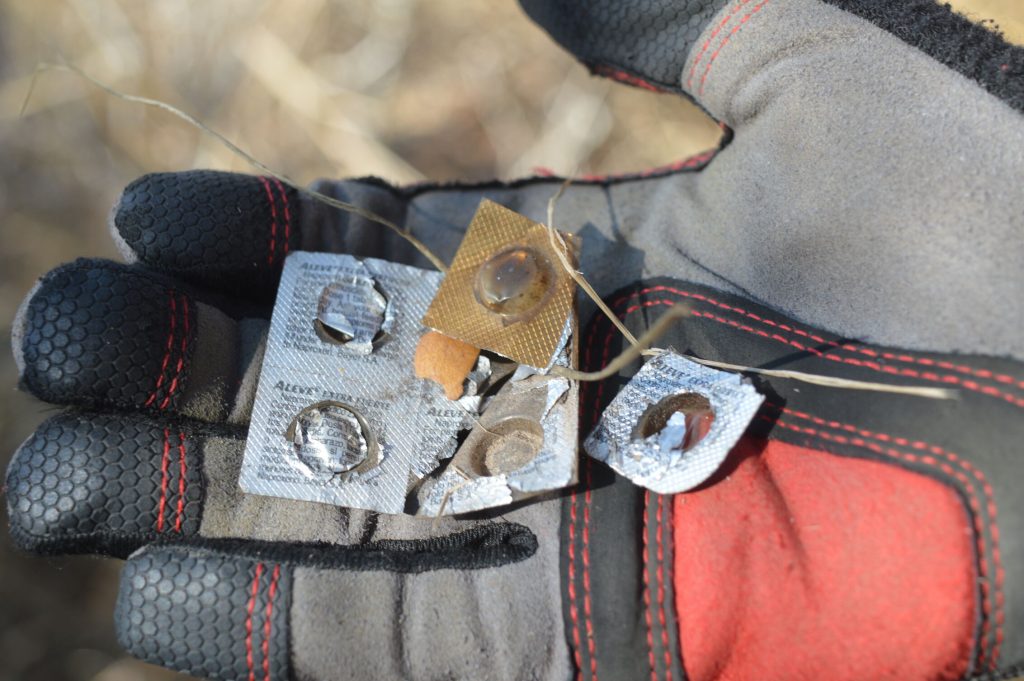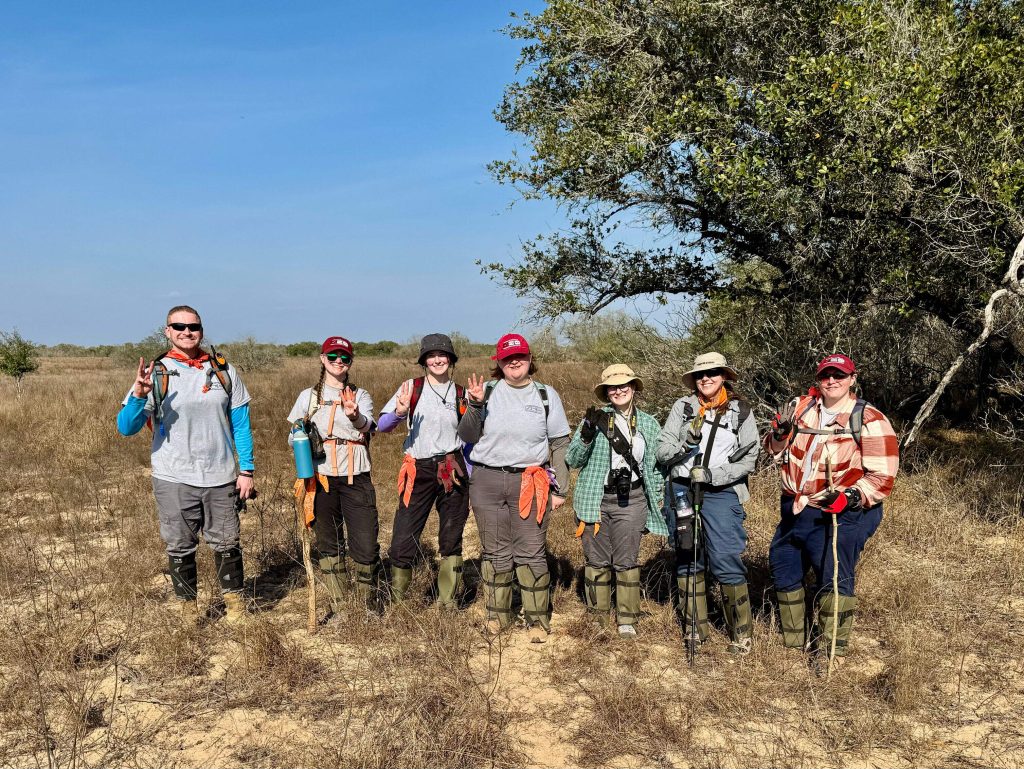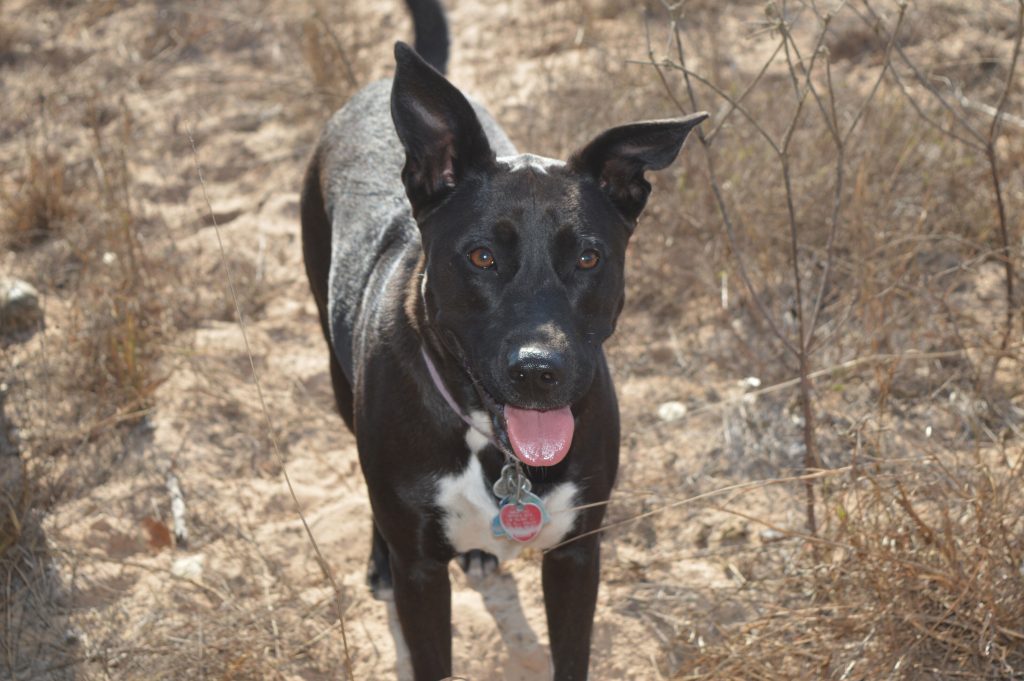It was strange to wake up this morning knowing that it would be the last day in Falfurrias with Don and Ray and everyone, and our last day out in the brush. There was a level of anticipation there, an excitement and motivation to get out there and make the final day count. At the same time, there was a level of sadness I felt about the trip coming to an end. About not having a tomorrow to wake up and do it all again.
Those thoughts stayed with me as we got ready for the morning, moving quietly and still half-asleep, before Don and Ray arrived at the hotel to pick us up and take us to breakfast.
We stopped at Rebecca’s, a local breakfast spot in town that serves homemade breakfast tacos and more. It was nice to just sit in this moment together, crowded around three tables that had been pushed into one, enjoying our eggs, waffles, and tacos while we talked in that easy, almost familiar way that we had developed over the course of the week.
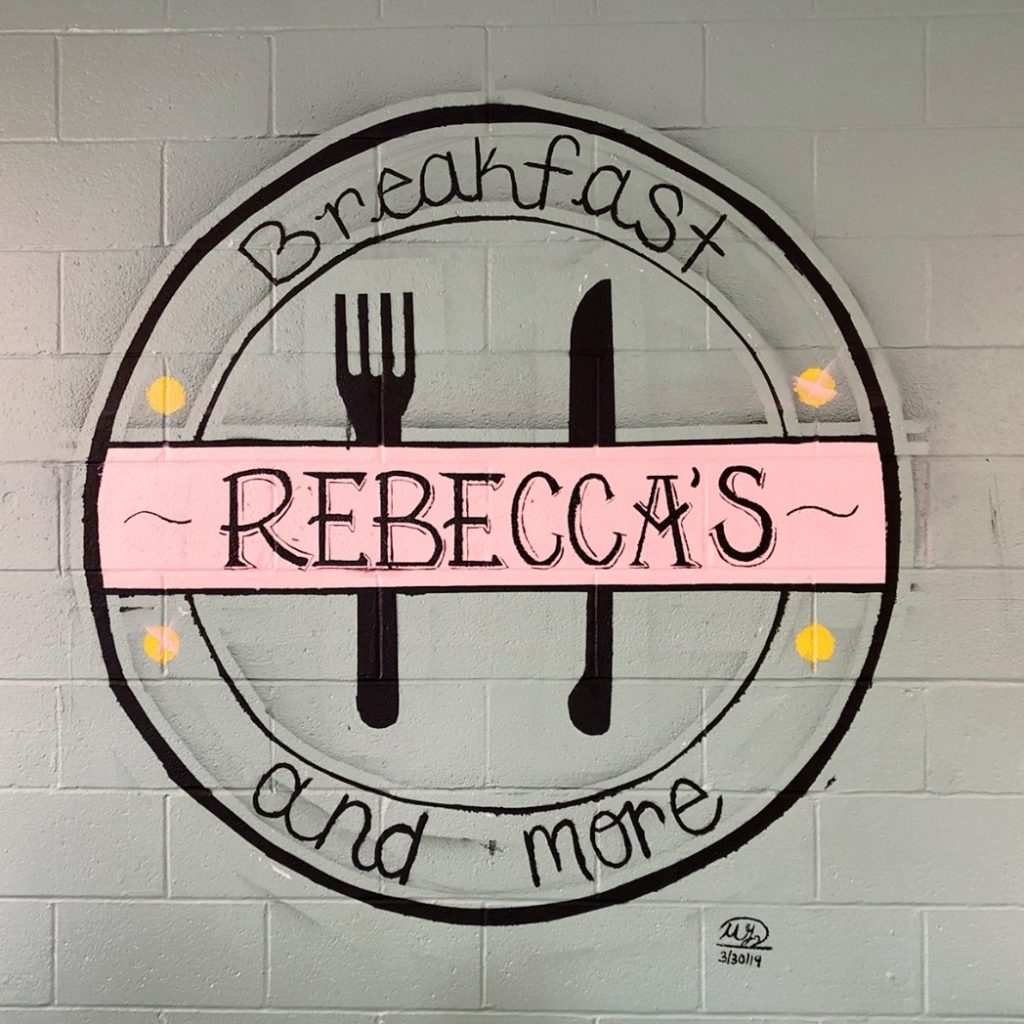
The pause helped quiet some of the lingering thoughts that I had been carrying about the day ahead. For a little while, there was nothing to focus on or worry about except the food in front of us and the people beside me. It felt grounding to sit with the people I had spent the past week working alongside—to share a meal, to laugh, and to enjoy a brief moment of reprieve before heading back out and into the brush for our final day.
– Makenna
As we headed to the last ranch of the trip, we all felt a quiet sadness knowing it would be our final day of searching. We were visiting a new ranch where two skulls were previously found, so our focus would be searching for additional remains belonging to these individuals, similar to what we did on day 3. Around 3 years ago, Don had also received a 911 call about a missing person in the area, who has yet to be found. So we had two goals for today: first, to search for skeletal remains that may be connected to the two skulls previously found, and second, search for the missing person.
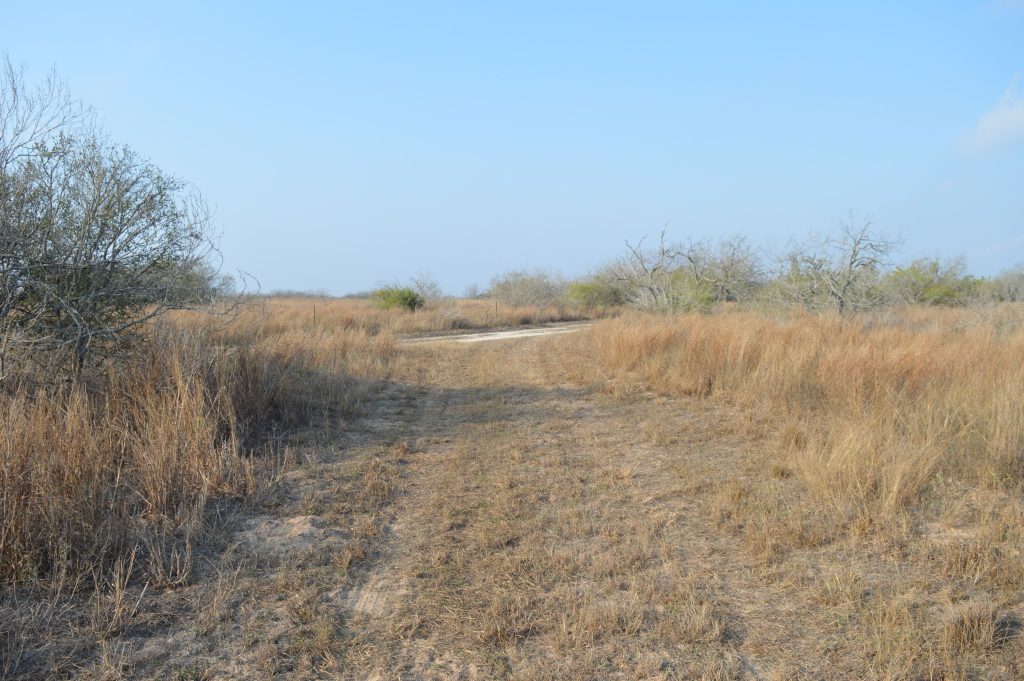
We began the day splitting into two groups and searching along each side of a dirt road. We weaved in and out of mottes, checking in tall grasses, and dirt piles along the way. We found a couple of artifacts and a few more animal bones before we got a transmission from Melissa over our walkie-talkies. She reported finding a fairly large layup with recent looking artifacts. After finishing our current search, we headed over to that area, with Melissa and Danny leading the way.
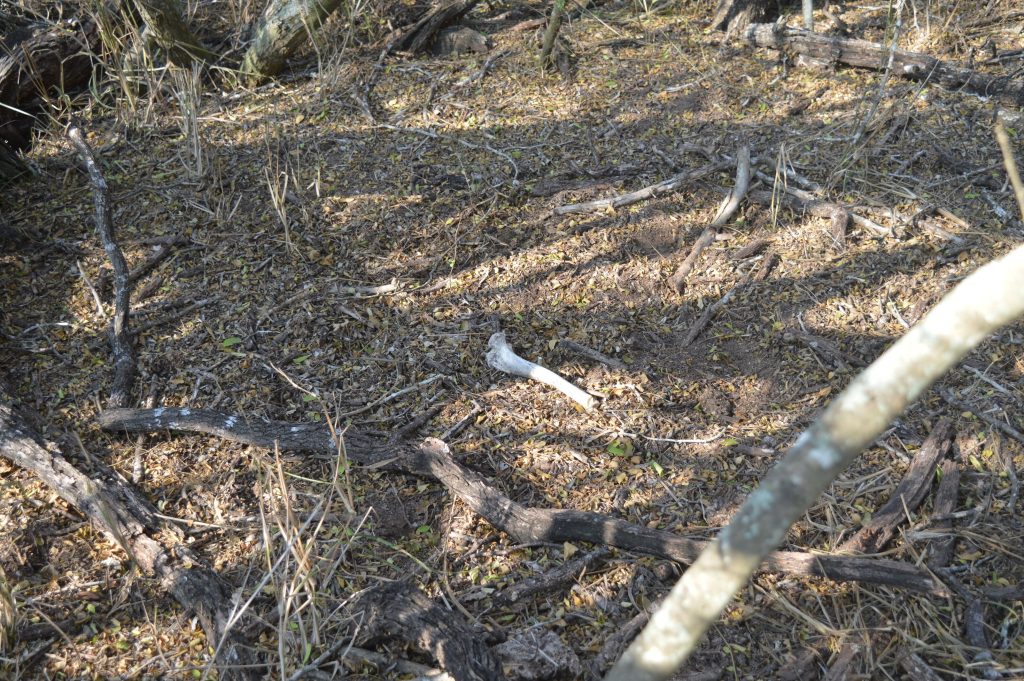
We observed the layup and were shocked by how recent it seemed. There were multiple black trash bags with holes stretched out for a head and arms to fit through. The quality and condition of the items suggested this was a high-traffic area. Next, Don had us spread out again in teams and search either side of the dirt road nearby to try to estimate what direction the migrants may have travelled to reach this area. Various artifacts were found on either side of the road, including backpacks, clothing, and discarded food and drink containers. We found a backpack, and as we began carefully unzipping and cutting open pockets, a small scorpion ran across the fabric. Moments like these are why we are so cautious when searching through clothing and other items, as there are dangers lurking and hiding almost everywhere. While we were able to take extra caution while out in the filed, migrants may not have that same luxury as they lie down to rest in a motte and open their bags at a later time. This furthered my realization of just how dangerous the entire journey is. Even during the times for rest and recovery, there are scorpions, snakes, spiders, thorns, cacti, and other predators nearby.
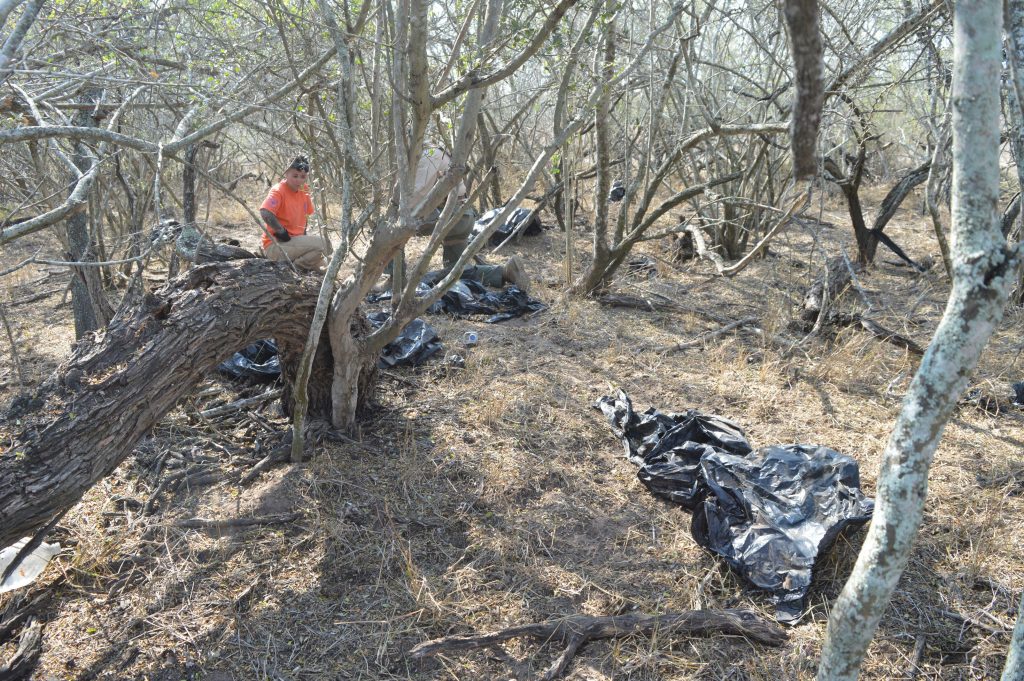
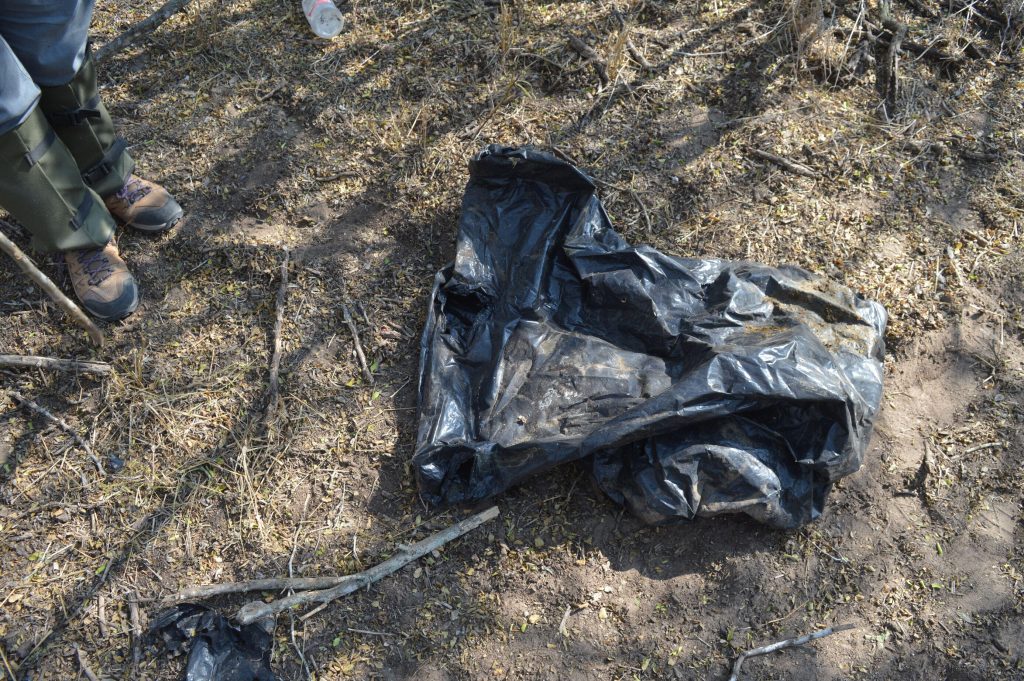
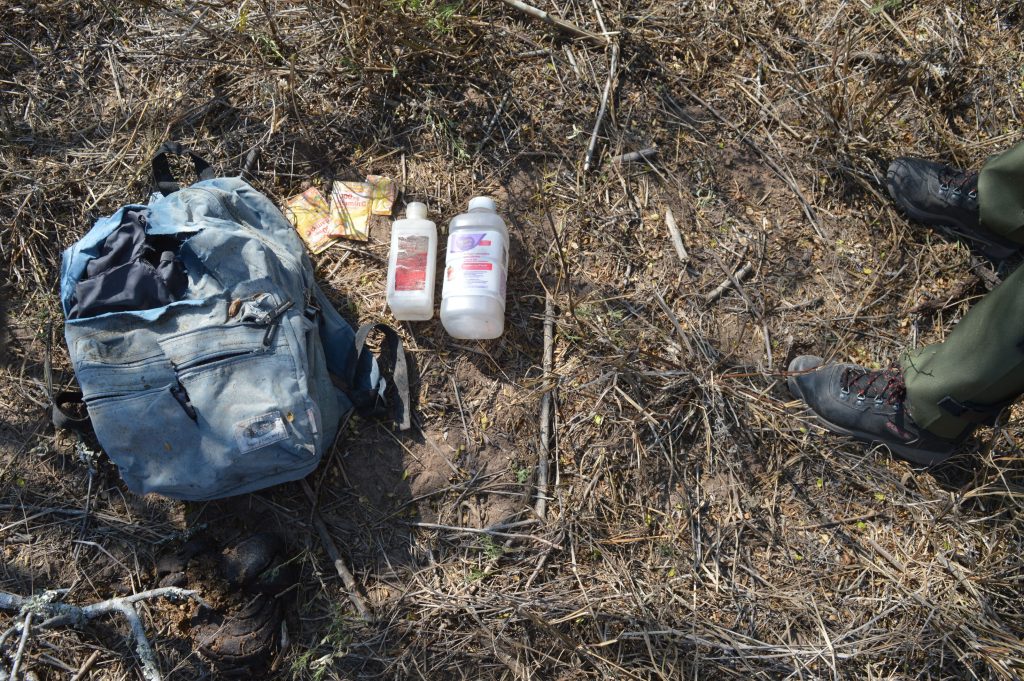
Just as we were finishing our search in that area, Reed transmitted that he found an Android smartphone. We were all pretty surprised about this, as we had not expected at all to find a phone, especially a smartphone. Many of us initially wondered if it was a burner phone or a flip phone. However, learning that it was a newer smartphone was a surprise, a valuable item to either lose or leave behind. It was pretty beat up, and the screen was cracked, but Don said he was pretty sure he could still figure out who it belonged to through the SIM card or serial number.
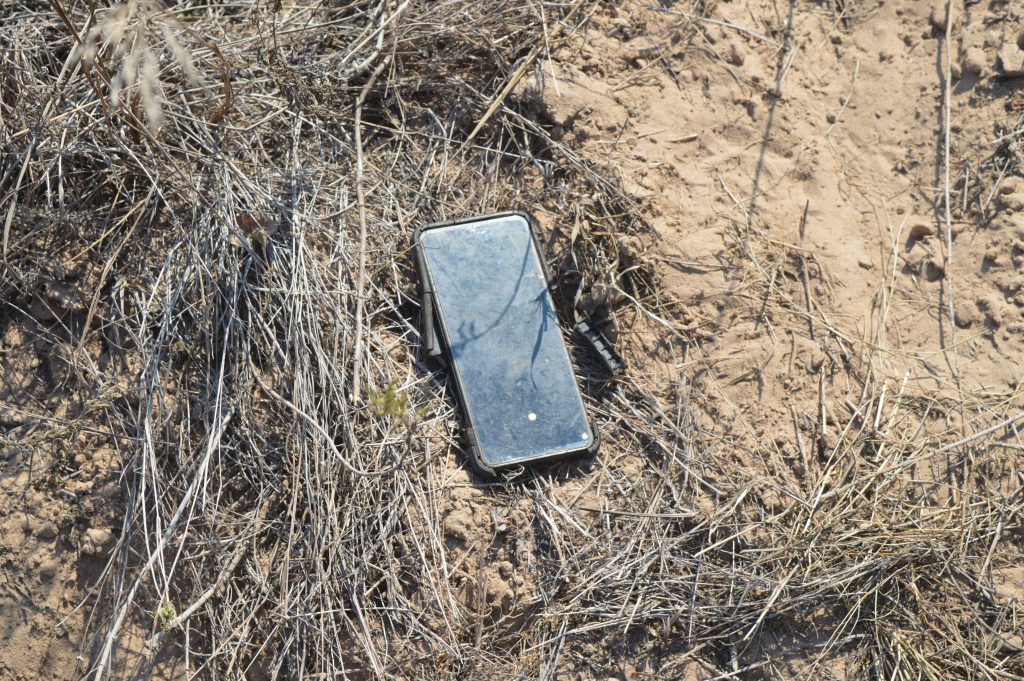
It was another hot, long morning of surprises. We all remained flexible when moving around to different search areas and we solidified the fact that we were searching in a high-traffic area. Afterwards we had a lunch break to refuel for the second half of our day searching within the brush.
– Amanda
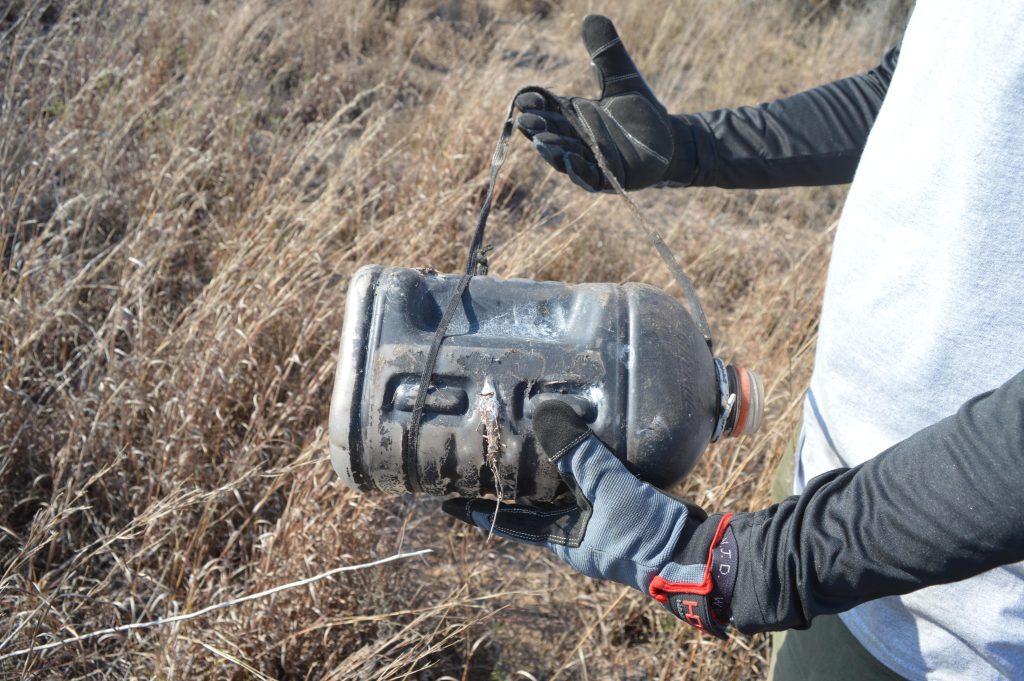
Because the layup that we found had newer artifacts and there had been recoveries in the area, our next goal was to search going north. If we continued to find artifacts from a similar time period, this could indicate how recent the pathway is and the general direction that it is moving. To do this, we conducted systematic line searches for the rest of the day.
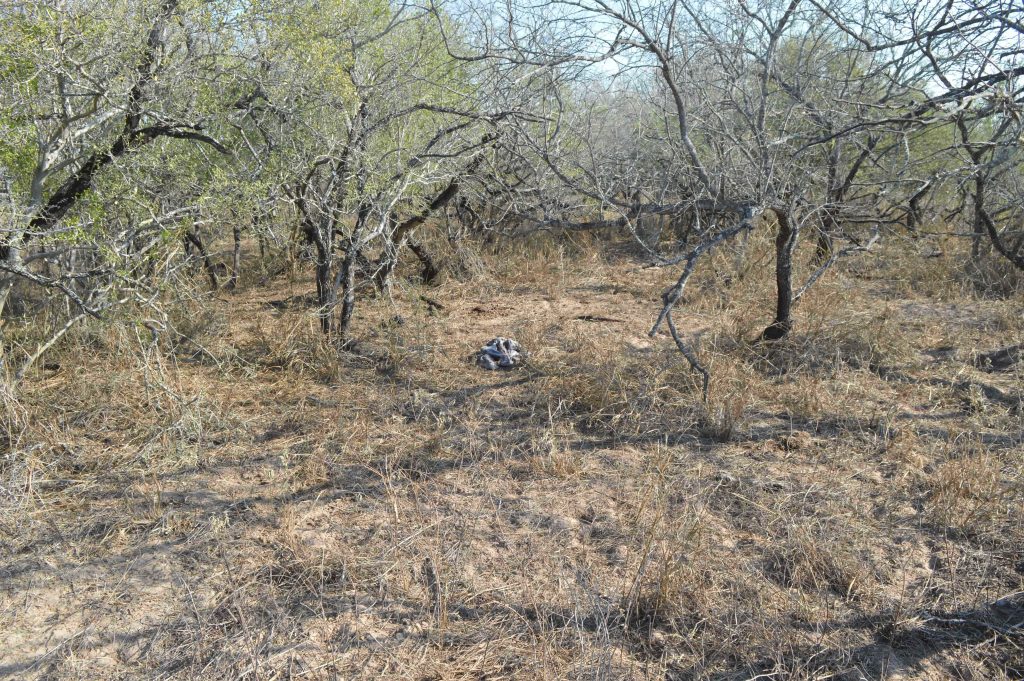
Line searches are utilized as a way to search an open space to thoroughly clear an area. Spacing, direction, and pacing are incredibly important during these searches, especially when sweeping an area where the ground is obscured by dense grass and bushes. While conducting the line search, we were able to sweep through high, thick grass and some mottes that were along our route north, where we found few items, including monster energy cans, water jugs, and a sweatshirt. However, they were older than the artifacts found in the lay up.
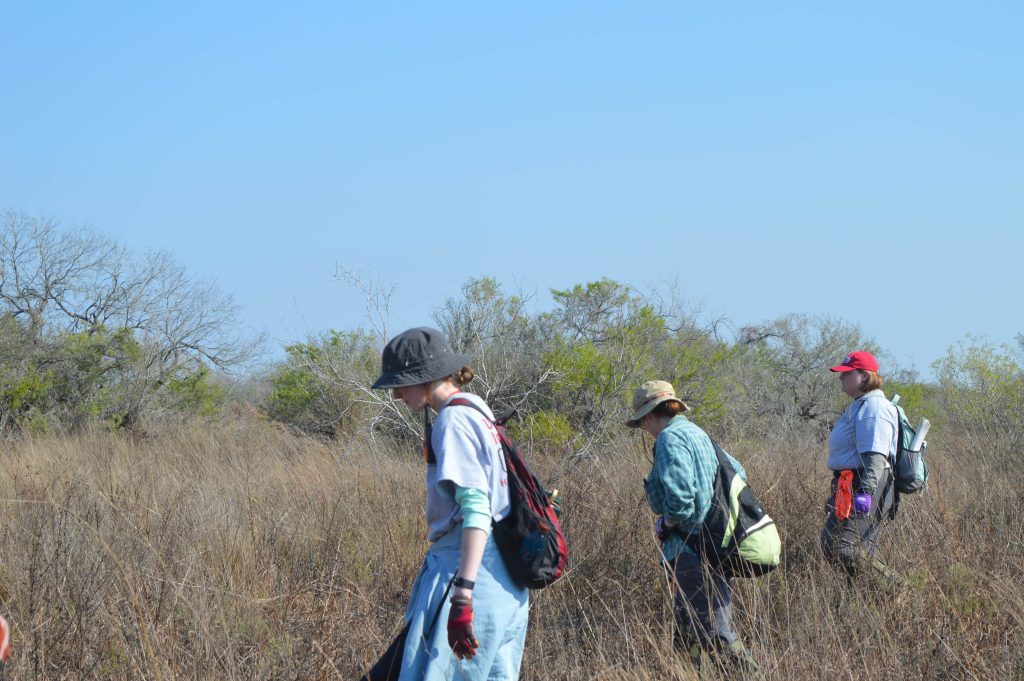
This search reminded me of the disorienting nature of being out on these ranches. Even with landmarks and compasses, it is incredibly easy to lose track of yourself in the brush. As I led the line search, I was incredibly lucky to have the team with me to ensure that we conducted a thorough search and stayed on track. I cannot imagine having to traverse this terrain without this support. As this was our last day in the field, I was able to reflect back on our previous searches and why we are here. No matter how difficult we may find the terrain, we had the opportunity to assist Don and Ray in their efforts to recover individuals who deserve to be returned to their family and what we were traversing is only a fraction of what migrants encounter as they cross the border.
After a long, hot, emotional week of searching, we met up with the rest of the crew at the ranch to have one last meal together as a team. It was joyful but bittersweet, reminiscing about the trip and what we learned while getting to know each other better, all while enjoying Ray’s delicious burgers. As I sat there with everyone—some I met only a few months ago and some just this week—I truly felt at home. Besides working together under extremely strenuous conditions, we were bonded by a shared commitment to honesty. Seeing how vulnerable Don, Ray, Reed, and Melissa were being with us, sharing stories about their personal lives, military experience, and search/recovery work, we couldn’t help but reciprocate. In addition to our experiences in the brush, these stories are what I will carry with me when I leave Falfurrias.
I will never forget those I’ve met during this trip and what they taught me, nor will I forget those whose paths we crossed and the evidence left by their efforts to achieve a reality in which I live each and every day. I hope that by sharing these stories and experiences with those outside of the Texas Borderlands, I will be able generate conversations that force people to think critically about the individuals they seek to dehumanize and the motivations behind an individual’s decision to migrate.
– Peytin
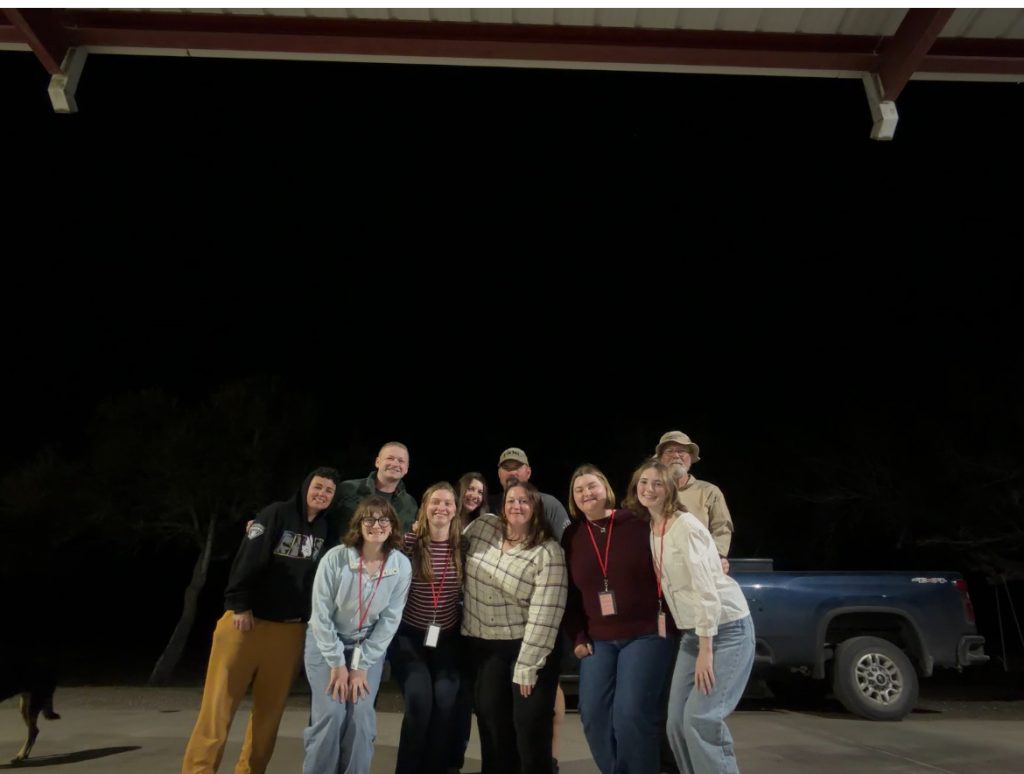
Thank you to everyone who took the time to read our blog and those who supported and donated the Beyond Borders Team during our 2026 trip.
In the words of our new friend, “thank you much” to Deputy Sheriff Don White and Paramedic Ray Gregory for keeping us safe and guiding our journeys in this unfamiliar territory. Thank you to Dr. Reed Mckinney and Melissa Schmalhorst for joining us this year and sharing your expertise with us. We thoroughly enjoyed the laughs, lessons, and stories shared by each of you on this trip. To Socks, Oakley, and Danny, thank you for the smiles, pets, and distractions as we worked in this physically and emotionally challenging atmosphere.
Thank you to Dr. Latham and Dr. Eriksen for making this trip possible and for giving us this unique and memorable opportunity.
Thank you to the city of Falfurrias, Texas for embracing us and our work.
–Makenna, Lilly, Amanda, and Peytin
We will continue to post daily over the next week!
